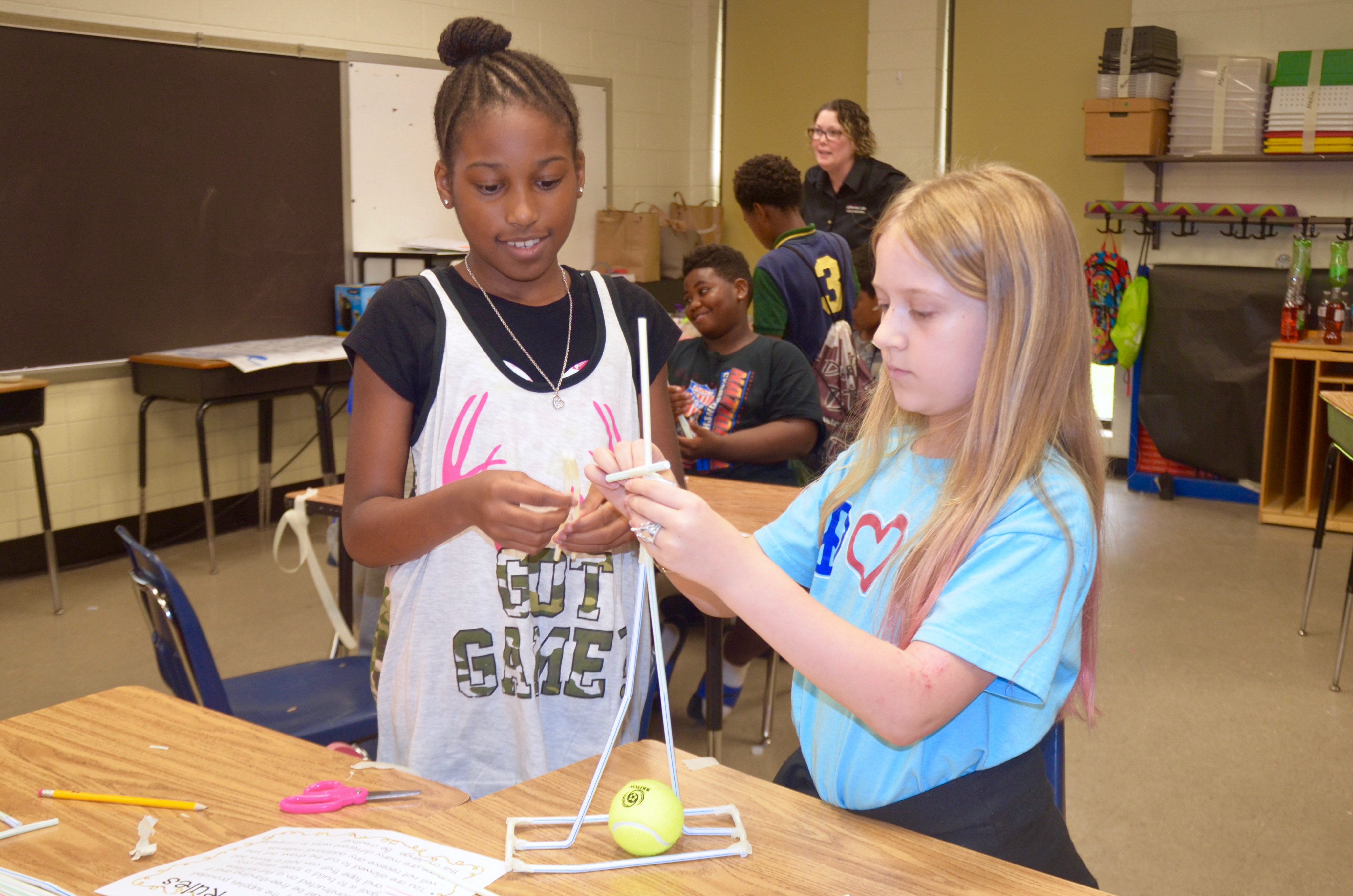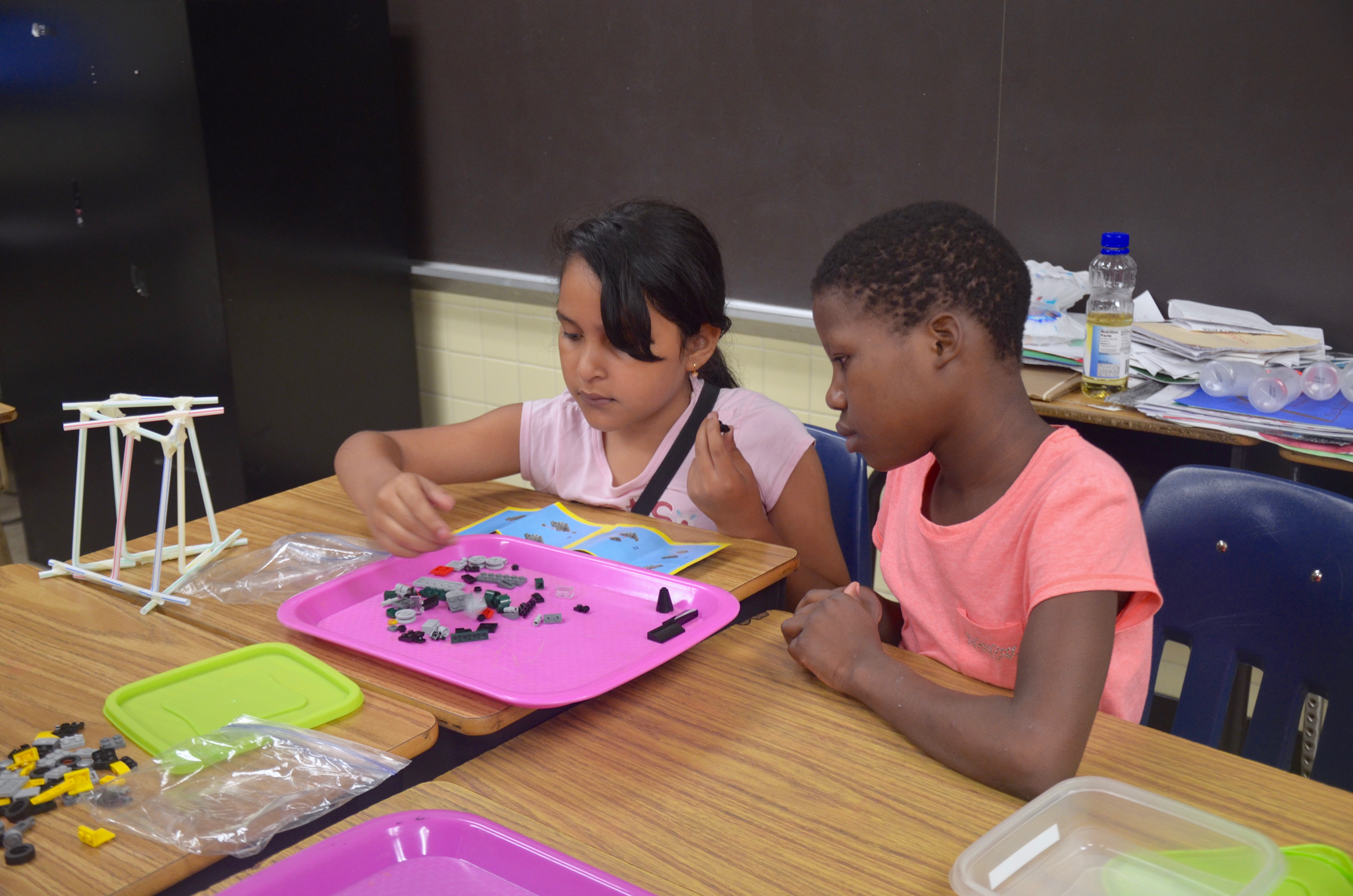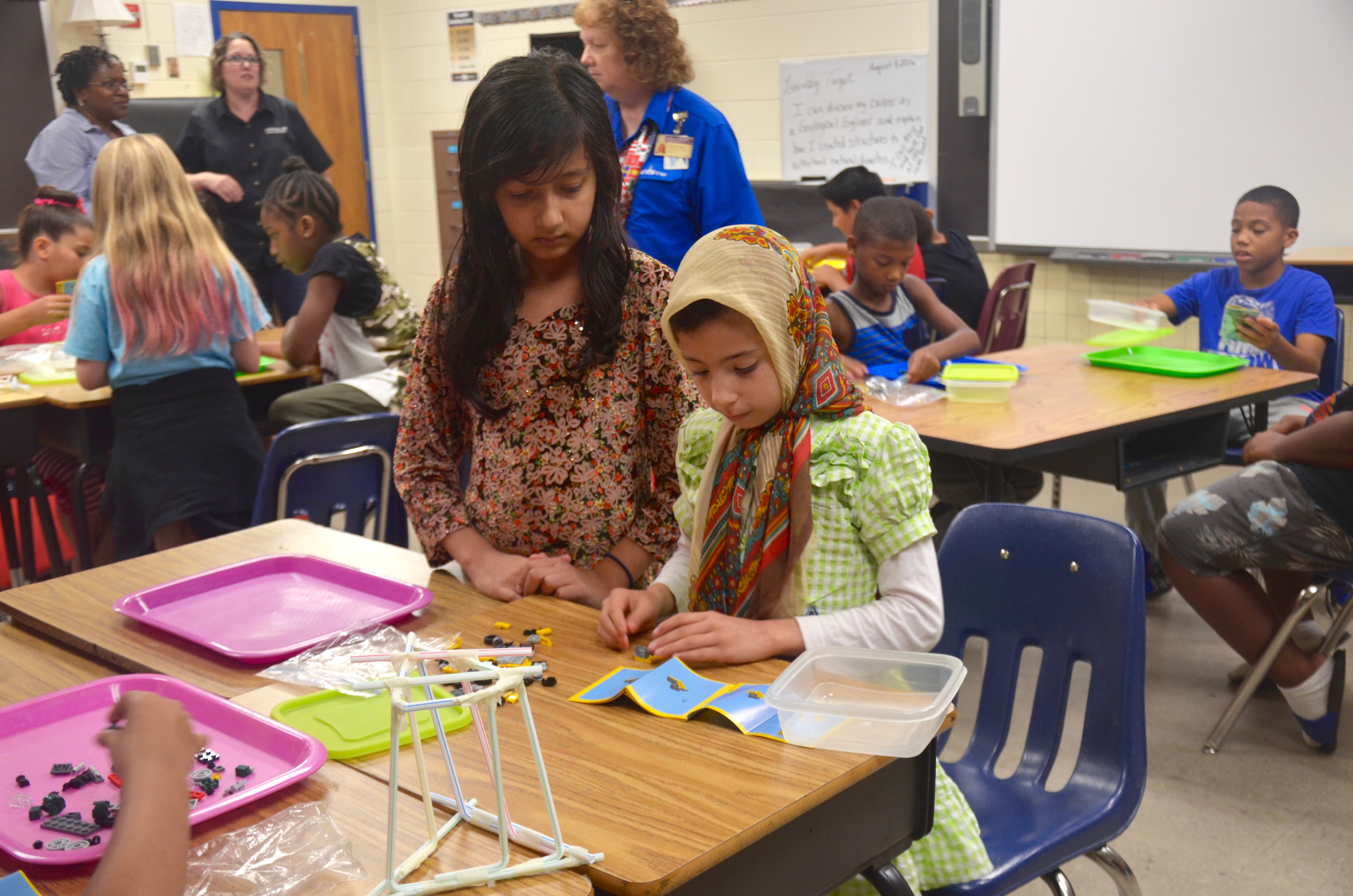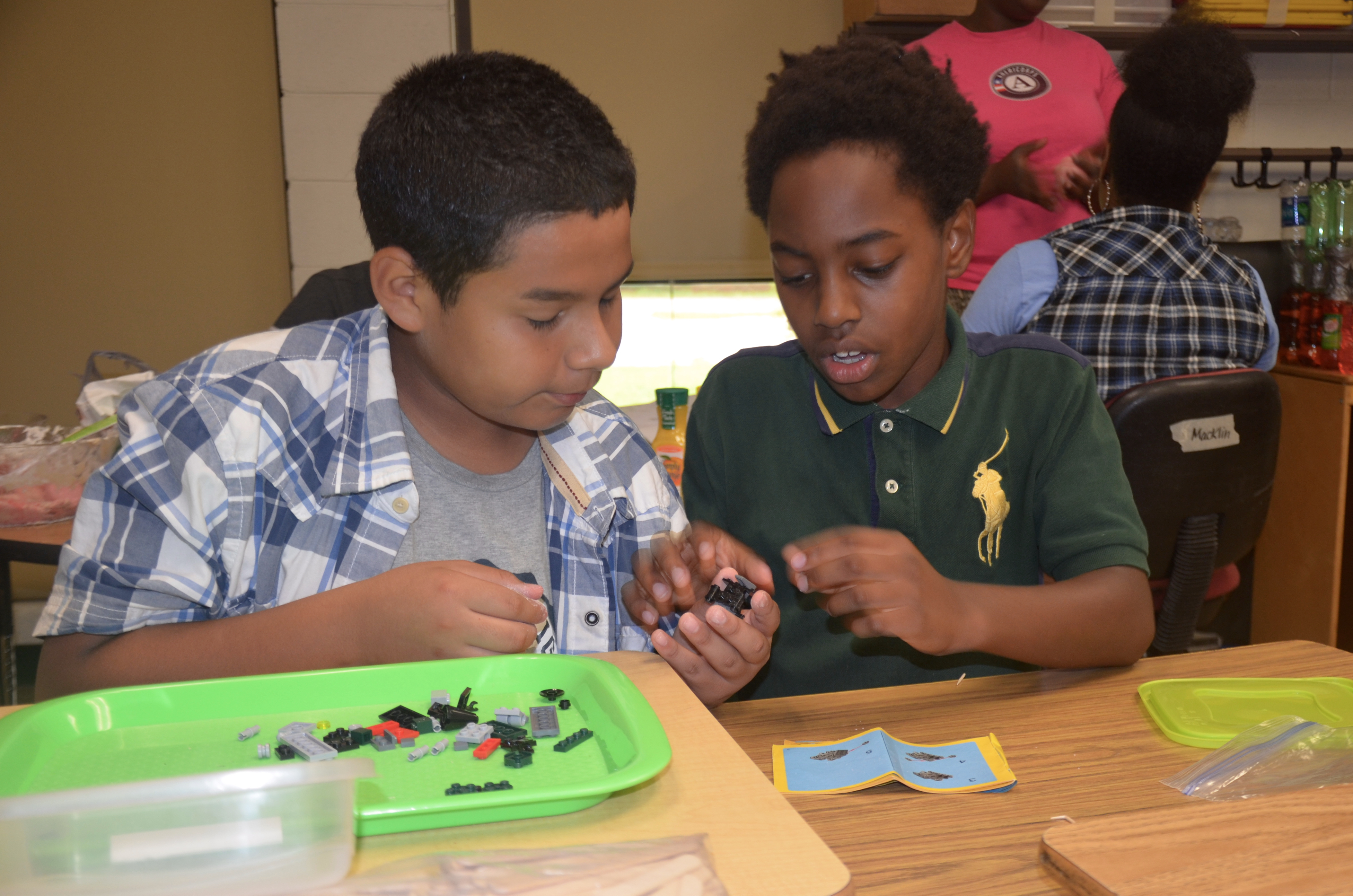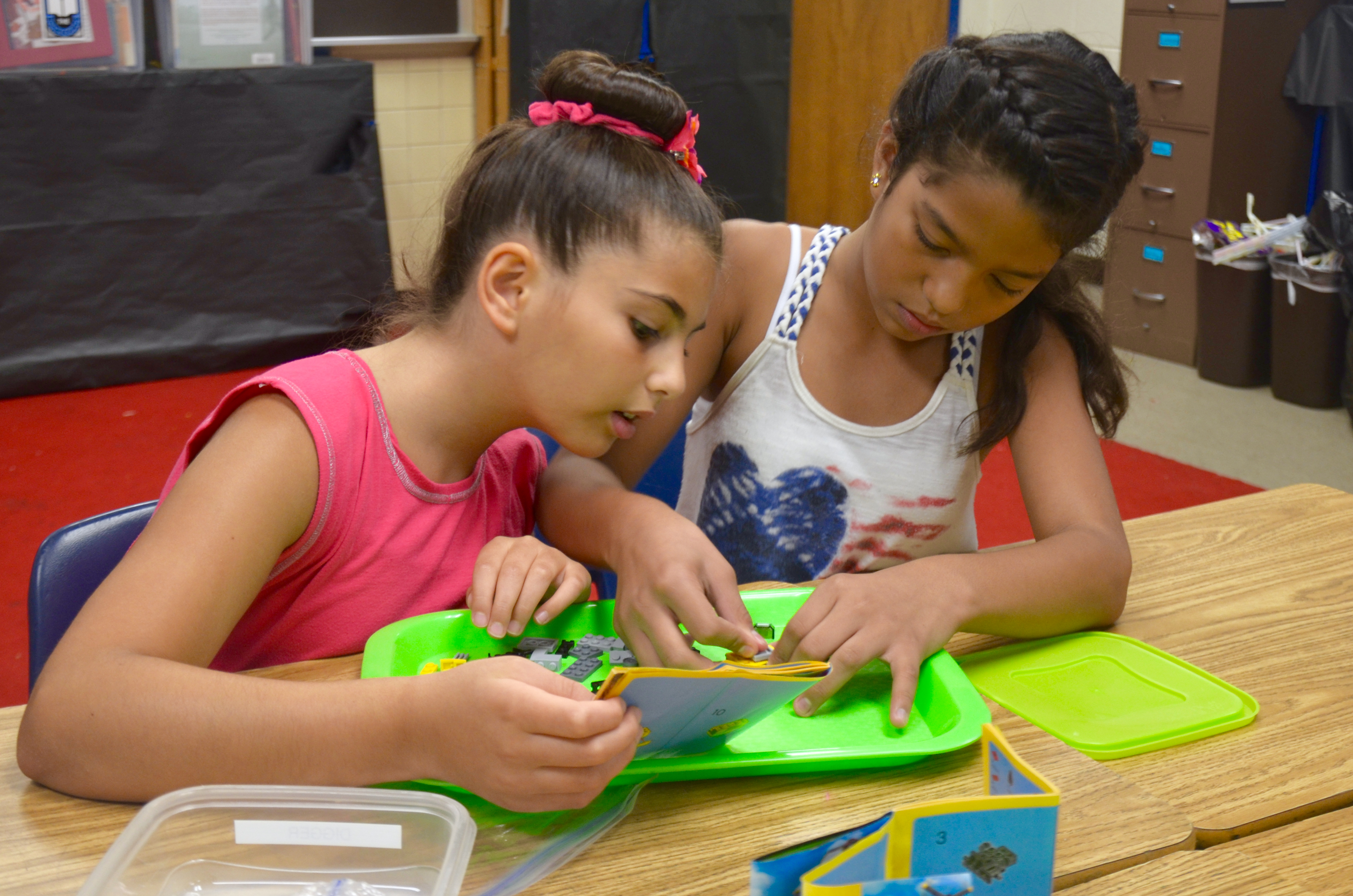Jefferson Lab Science Education staff participated again this year in the Newport News Public School Summer Program for Arts, Recreation and Knowledge, or SPARK. JLab staff conducted a series of hands-on activities and design challenges with a different classroom of students each week and on Thursdays invited the students to the lab for a field trip.
While participating in the Newport News Public School system’s 2016 SPARK program over the summer, staff from the Department of Energy’s Thomas Jefferson National Accelerator Facility engaged students in team work, problem solving, and a deeper understanding of some math, science and engineering concepts – all while conducting a variety of hands-on activities and design challenges.
After initiating the program in a few schools last summer, the City of Newport News expanded the program to seven schools this year. SPARK, which stands for Summer Program for Arts, Recreation and Knowledge, ran Monday-Thursday, July 5-August 4, and included academics, recreation, meals and transportation. In the mornings, students took part in STEM activities and academic lessons (reading, writing and math) pertaining to courses they will take in the coming school year. In the afternoons, they participated in additional STEM activities, as well as arts, and park and recreation opportunities provided by local businesses, museums, non-profit organizations and city agencies.
Jefferson Lab’s Science Education staff interacted each week with a different class of rising fifth-graders at Palmer Elementary School. Palmer was among the three Newport News elementary schools participating in SPARK. Monday through Wednesday afternoons, Science Education staff conducted a series of hands-on activities and design challenges with the students at Palmer. On Thursdays, the classes each took a field trip to the lab.
Jefferson Lab activities included building a structure from masking tape and plastic straws that was capable of holding a tennis ball, learning about chromatography (separating the components of a mixture), making liquid nitrogen ice cream, creating different types of circuits, designing a catapult to launch marshmallow chicks, and building structures from Lego™ pieces.
Christine Wheeler, Jefferson Lab education administrator, said the activities were well received by the students and that their efforts showed creativity and focus. “These types of activities also encourage development of the skills and behaviors necessary for successful workforce development,” she added, “helping today’s students prepare for tomorrow’s careers.”
Ann Shoemaker, a SPARK administrator at Palmer Elementary School, was delighted to have Jefferson Lab take part in the program again this summer. “Your (Jefferson Lab) participation brings a real-life connection for our students,” she remarked. “It gives them a concrete example of how science is used in different kinds of jobs, and shows them that what they learn in school can translate into a career.”
“The hands-on activities really get the students excited,” she added. “They become so much more engaged. And they get a sense of how people use information and do problem solving in their jobs. The students also love to meet new people and hear their perspective.”


